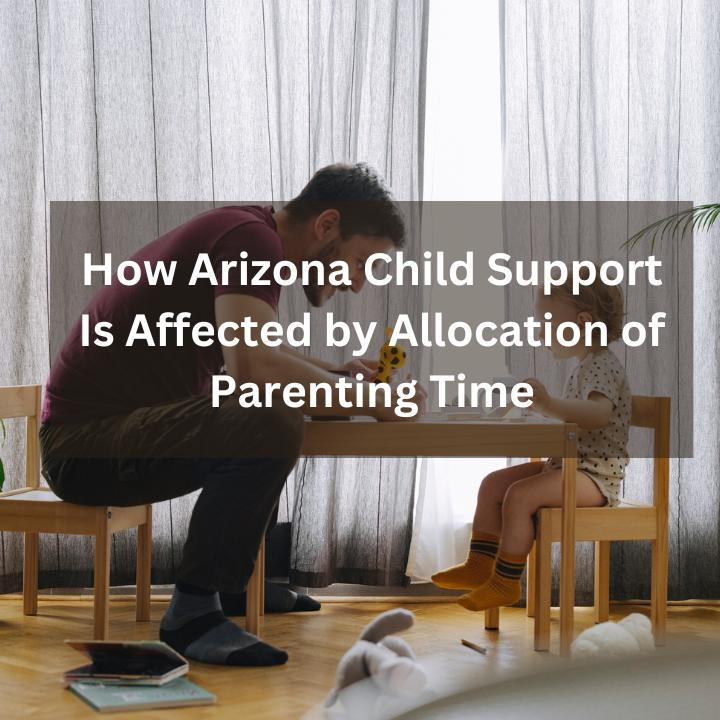
How Arizona Child Support Is Affected by Allocation of Parenting Time
- posted: Jan. 26, 2024
- Child Support
In Arizona, child support obligations are influenced by various factors. One of these is parenting time, also known as residential custody. If parenting time is shared, child support payments are calculated with that in mind. Payments are apportioned based on how much time each parent spends with the child.
Arizona follows the “Income Shares Model” to determine child support obligations., This model takes into account the income of both parents and the amount of time each parent spends with the child. The philosophy behind this model is to ensure that the child receives the same proportion of financial support that they would have received if the parents had remained together. Under the state child support guidelines, when parents share parenting time more equally, the child support calculation may be adjusted to reflect the financial responsibilities of both parents. The court aims to ensure that both parents contribute financially, taking into account the costs associated with raising a child, such as education, healthcare, and extracurricular activities.
The noncustodial parent’s share of child support is adjusted, or reduced according to these steps:
- The total child support obligation is calculated, with each parent contributing a proportionate share based on their income.
- Total annual parenting time is determined by looking at the parenting plan adopted by the parents or by examining how they share time. Each block of parenting time begins when the noncustodial parent receives the child and ends when the child is returned to the custodial parent.
- The time blocks are added together for an annual total. That annual total is matched to a predetermined adjustment percentage based on the child support guidelines.
- The total child support obligation is multiplied by the adjustment percentage. The resulting amount is subtracted from the noncustodial parent’s proportionate share.
The allocation of parenting time might also impact how extraordinary costs are divided between parents. Extraordinary costs can include expenses for medical treatments, educational needs and unforeseen circumstances. The court may allocate these costs based on the proportion of parenting time each parent has, so that the financial burden is distributed fairly.
The apportionment calculations get more complicated when there is more than one child and parenting time is divided differently among the children. As these situations are fairly common, the child support guidelines have appropriate formulas for adjusting each parent’s obligation.
Child support matters can be contentious and support orders can have significant impact on each party’s finances. An experienced child support attorney can help make sure that the children’s well-being and your finances are both protected.
Clark & Schloss Family Law, P.C. in Scottsdale offers reliable advice on child support and other family legal issues throughout Arizona. To schedule a free consultation with one of our skilled attorneys about your case, please call 602-789-3497 or contact us online.



